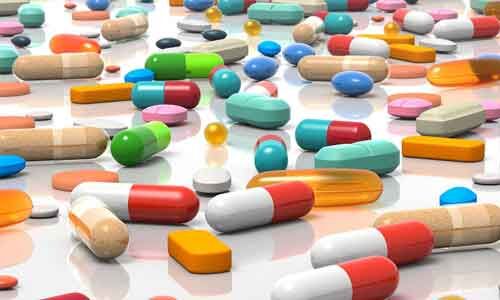DPCO has led to increase in prices by about 21pc for cheaper drugs: Survey

The Survey said its estimates also show that the DPCO, 2013 order increased prices by about 21 per cent for the cheaper formulations. However, in the case of costly formulations the increase was about 2.4 times, it added.
New Delhi: Government interventions to regulate prices of essential drugs have led to a hike in their cost when compared to unregulated similar drugs instead of making them affordable, according to the Economic Survey for 2019-20. In India, the government has historically relied on price controls to regulate the prices of pharmaceutical drugs through the National Pharmaceutical Pricing Authority (NPPA) and Drug (Prices Control) Order, said the Survey.
The government through DPCO ensures that the medicines listed under the National List of Essential Medicines (NLEM) are available at a reasonable price to the general public, it added.
"The regulation of prices of drugs through the Drugs Prices Control Order (DPCO) 2013, has led to increasing in the price of a regulated pharmaceutical drug vis-a-vis that of a similar drug whose price is not regulated," the Economic Survey 2019-20, tabled in Parliament on Friday, said.
It further said: "Our analysis shows that the increase in prices was witnessed for more expensive formulations than for cheaper ones and those sold in hospitals rather than retail shops, reinforcing that the outcome is opposite to what DPCO aims to do - making drugs affordable."
It estimated that the prices of drugs that came under DPCO, 2013 increased on average by Rs 71 per mg of the active ingredient and for drugs that were unaffected by DPCO, 2013, the prices increased by Rs 13 per mg of the active ingredient.
To parse out the effect of the DPCO order, the Survey said, "the prices of formulations that came under DPCO, 2013 and that was mostly sold at hospitals increased by Rs 99 per mg. In the case of formulations mostly sold in hospitals that were unaffected by DPCO, 2013, the prices increased by only Rs 25 per mg."
Thus, the difference-in-difference estimate for formulations sold primarily through hospitals was Rs 74 per mg, it added.
In contrast, the prices of drugs that came under DPCO, 2013 and primarily sold through retail outlets increased by a meagre Re 0.23 per mg during the same period. However, in the case of formulations unaffected by DPCO, 2013 and mostly sold by retail chemists, the prices increased by about Rs 1.72 per mg, the Survey said.
"This shows that the DPCO, 2013 appears to have increased the prices of drugs mostly sold through hospitals but decreased it mildly in the case of drugs sold through the retail chemists," it added.
Also Read: Government Must Have Compulsive Licensing For Essential Drugs: Chairman, Cipla
The Survey said its estimates also show that the DPCO, 2013 order increased prices by about 21 per cent for the cheaper formulations. However, in the case of costly formulations the increase was about 2.4 times, it added.
"The effect of DPCO, 2013 in increasing prices was, therefore, more potent for more expensive formulations than for cheaper ones - reinforcing the effect opposite to what it was instituted for i.e., making drugs affordable," the Survey noted.
The analysis of the Essential Commodities Act (ECA) clearly shows that stock limits and price controls under the Act lead to sub-optimal outcomes which are actually opposite to what the Act is mandated to achieve, it added.
The Act interferes with the functioning of the markets and provides incentives which are detrimental to wealth creation thereby adversely affecting both social welfare and economic development, the Survey said.
"ECA needs to be repealed and replaced by market-friendly interventions like price stabilization funds, Direct Benefit Transfers (DBT) of support to consumers, incentives to innovations, increasing market integration and smooth flow of goods and services," it added.
The government in various regulatory actions earlier had fixed the prices of coronary stents, various knee replacement implants and drugs for the diseases such as cancer, cardiac conditions and diabetes, among others.
Also Read: Relief To Foreign Drugmakers: No Price Cap On Innovative Drugs For First Five Years
Farhat Nasim joined Medical Dialogue an Editor for the Business Section in 2017. She Covers all the updates in the Pharmaceutical field, Policy, Insurance, Business Healthcare, Medical News, Health News, Pharma News, Healthcare and Investment. She is a graduate of St.Xavier’s College Ranchi. She can be contacted at editorial@medicaldialogues.in Contact no. 011-43720751 To know about our editorial team click here

Disclaimer: This site is primarily intended for healthcare professionals. Any content/information on this website does not replace the advice of medical and/or health professionals and should not be construed as medical/diagnostic advice/endorsement or prescription. Use of this site is subject to our terms of use, privacy policy, advertisement policy. © 2020 Minerva Medical Treatment Pvt Ltd